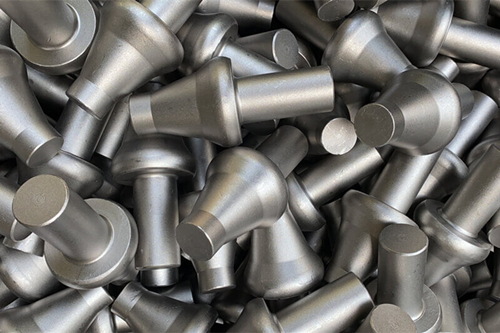
5 Reasons Forging Gears Has Gained Traction In Car Manufacturing
July 17, 2023
There are many reasons why car manufacturers are moving to gear forgings. The cost-saving and quality gears are just some of the reasons. Here are the major reasons:
Strength and Durability: Forged gears offer exceptional strength and durability compared to gears made using other manufacturing methods. The forging process involves shaping metal through heat and pressure, resulting in a dense and uniform structure that enhances the gear’s ability to handle high loads and resist wear and fatigue. This makes forged gears ideal for demanding applications in automobiles, where they need to withstand high torque and power transmission.
Weight Reduction: Forging gears allows manufacturers to achieve weight reduction without compromising on strength. By using the forging process, excess material can be eliminated, resulting in lighter gears. Lighter gears contribute to overall weight reduction in vehicles, which can improve fuel efficiency and performance. Additionally, reduced weight can also lead to decreased wear on other components and improved handling.
Improved Efficiency: The precise and controlled manufacturing process of forging gears enables the production of gears with optimized tooth profiles and surface finishes. This helps in minimizing friction and power losses during gear operation, leading to improved mechanical efficiency. Enhanced efficiency translates into reduced energy consumption and increased fuel economy, which is a crucial consideration for car manufacturers striving to meet stringent emission regulations.
Enhanced Performance: Forged gears can handle higher loads and transmit power more effectively than gears made using alternative manufacturing methods. The superior strength and reliability of forged gears allow them to withstand the demands of high-performance applications, such as sports cars or heavy-duty vehicles. By incorporating forged gears, car manufacturers can enhance the performance capabilities of their vehicles, including improved acceleration, towing capacity, and overall driving experience.
Cost-effectiveness: While the initial investment in forging equipment and tooling may be higher, the long-term cost-effectiveness of forged gears makes them an attractive option for car manufacturers. The durability and longevity of forged gears reduce the need for frequent replacements and maintenance, resulting in lower lifecycle costs. Additionally, the ability to produce complex gear geometries with minimal material waste in the forging process can lead to efficient material utilization and cost savings.
Read more about forging gears and the best forging gears manufacturers in the market.
